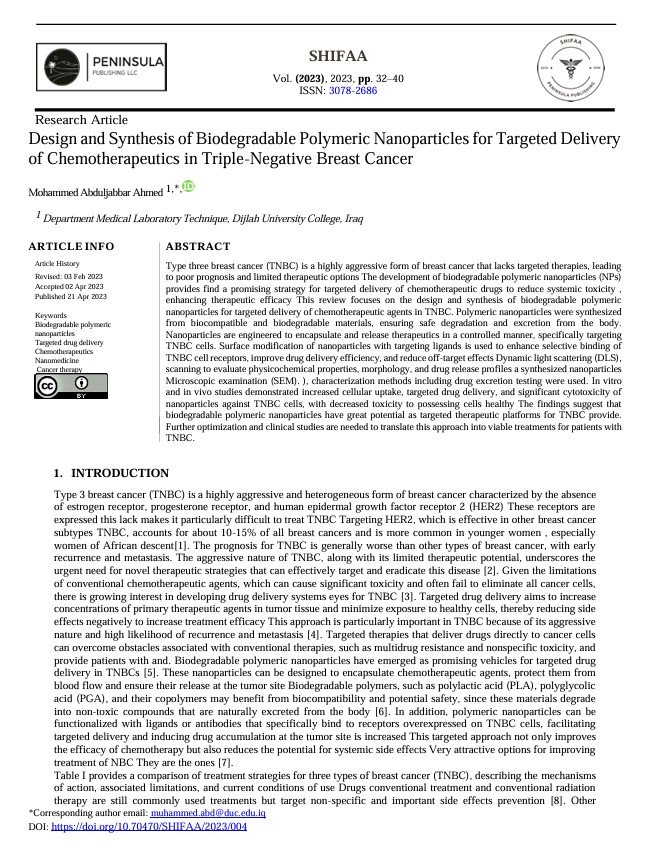Design and Synthesis of Biodegradable Polymeric Nanoparticles for Targeted Delivery of Chemotherapeutics in Triple-Negative Breast Cancer
Main Article Content
Abstract
Type three breast cancer (TNBC) is a highly aggressive form of breast cancer that lacks targeted therapies, leading to poor prognosis and limited therapeutic options The development of biodegradable polymeric nanoparticles (NPs) provides find a promising strategy for targeted delivery of chemotherapeutic drugs to reduce systemic toxicity , enhancing therapeutic efficacy This review focuses on the design and synthesis of biodegradable polymeric nanoparticles for targeted delivery of chemotherapeutic agents in TNBC. Polymeric nanoparticles were synthesized from biocompatible and biodegradable materials, ensuring safe degradation and excretion from the body. Nanoparticles are engineered to encapsulate and release therapeutics in a controlled manner, specifically targeting TNBC cells. Surface modification of nanoparticles with targeting ligands is used to enhance selective binding of TNBC cell receptors, improve drug delivery efficiency, and reduce off-target effects Dynamic light scattering (DLS), scanning to evaluate physicochemical properties, morphology, and drug release profiles a synthesized nanoparticles Microscopic examination (SEM). ), characterization methods including drug excretion testing were used. In vitro and in vivo studies demonstrated increased cellular uptake, targeted drug delivery, and significant cytotoxicity of nanoparticles against TNBC cells, with decreased toxicity to possessing cells healthy The findings suggest that biodegradable polymeric nanoparticles have great potential as targeted therapeutic platforms for TNBC provide. Further optimization and clinical studies are needed to translate this approach into viable treatments for patients with TNBC.
Article Details

This work is licensed under a Creative Commons Attribution 4.0 International License.
